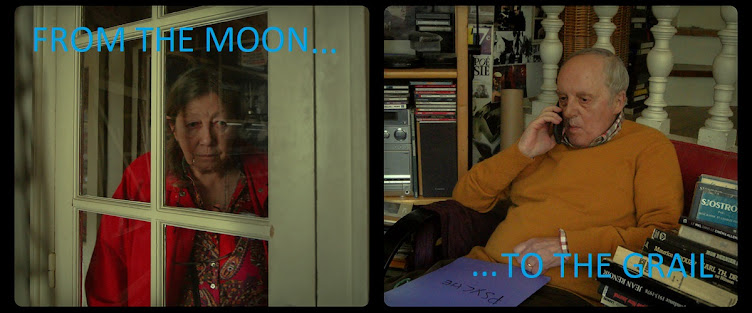 Running Time: 106 minutes
Running Time: 106 minutesDirected By: Ang Lee
Written By: Ang Lee, Neil Peng, James Schamus
Main Cast: Winston Chao, Mitchell Lichtenstein, May Chin, Sihung Lung, Ah-Leh Gua
ANG LEE WEEK: STAGE 1
Popped in "The Wedding Banquet" tonight in an effort to get things rolling on "Ang Lee Week" and was pleasantly surprised by a very simple, yet very good film. Let's dive right in.
Our main character is Wai-Tung Gao (Chao), a gay man living in Manhattan with his physical therapist boyfriend Simon (Lichtenstein). Wai-Tung regularly corresponds with his "Ma" and "Pa" who still live in Taiwan and is constantly hounded (mostly from Ma) about settling down and getting married. You see, Wai-Tung has yet to tell his parents that he is a gay man and is shacking up with a white boyfriend and doesn't plan to. Wai-Tung owns an apartment building, where he tries to collect rent from one of his few tenants, Wei Wei (Chin). When Wei Wei is in need of a green card, Simon convinces Wai-Tung to marry her, so that they can get his parents off his back, help Wei Wei out and get a little tax break. Wai-Tung gives in, announces the news to his parents, who fly to the United States and moves Wei Wei into house, where she begins to study Wai-Tung's behavior for her immigration exam. When Wai-Tung and Wei Wei announce that they plan to marry at city hall, this upsets his parents, who hoped for a big wedding banquet. Wai-Tung, wanting to please his parents, especially his ill father, gives into the plans for a wedding banquet and the Gao family goes all out to celebrate the union of Wai-Tung and Wei Wei. When Wei Wei becomes pregnant on the night of the wedding banquet, complications occur and the pot is stirred up even more vigorously, adding to the madcap nature of this really fun comedy.
POSSIBLE SPOILER ALERT!
I wasn't looking forward, not not looking forward to my first Ang Lee film, "The Wedding Banquet", but that proves my theory: When one doesn't look forward to a movie, the possibilities are endless. I loved this movie! It was nice to get a little break from the serious, artsy films, some of which resemble doing homework and have a little fun with a very light hearted little comedy. I thought it was great how they threw in so many different little elements and just let everything play out. First off we have a gay couple living in New York, then you add in a woman/friend of theirs who needs a green card. Then you add in the fact that Wai-Tung's parents are traditionalists and want him to have a formal wedding and settle down with a nice girl. You throw those things together and that's really enough to get you through an entire film. But then you also get some bonus story lines, ie. the pregnancy of Wei Wei, the possible lust that Wai-Tung holds for Wei Wei and the ever growing combustible nature of the Wai-Tung/Simon relationship.
I also liked the ending, how no one really knew what was really going on, but happiness still prevailed and the aging parents of Wai-Tung got to experience one last journey in their long lives and get some joy out of it. I think the ultimate message of the film (or at least one of them) is that life has a way of throwing you a curve ball and while things may not work out the way you planned them, they'll always work out. I think the film also says that plans are never concrete and no matter how you plan for a situation, things can go astray. With a good script, good acting and a few brief images of great cinematography, it's easy to see that we're not just dealing with any other film maker and that Ang Lee was headed for great things.
RATING: 10/10 Maybe I'm being too generous or maybe the film just put me in a really good mood, but I'm going the distance on this one and leaving it at that. Next up: "The Ice Storm".
MOVIES WATCHED: 192
MOVIES LEFT TO WATCH: 809
November 18, 2010 1:07am















